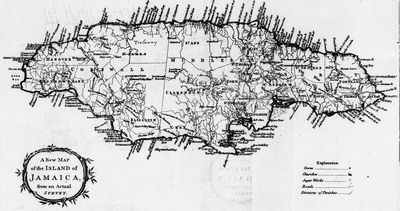Slavery Through Time: from Enslavers to Abolitionists, 1675-1865
This collection explores and offers varying perspectives on the explosive debate around the Transatlantic Slave Trade during the 17th, 18th, and 19th centuries. The documents, through a combination of correspondence, pamphlets, memoirs, and statistics, track both the proliferation of British power and the enslavement it was built upon, as well as the moral critiques that arose as a reaction to the horrific practice.
The focus of the documents coalesces around how enslavement and trade manifested in the West Indies, one of Britain’s most valuable colonial assets. Unsurprisingly, those who stood most to lose from the abolition of slavery, namely the business community and plantation owners, undertook activity to convince people of the benefits of slavery. On the other hand, religious and other civil society groups formed the bulwark of opposition to slavery and their resistance is documented through various society papers.
Culminating in a victory for the abolitionists, slavery was officially banned in British territory in 1832. Documents featured in the collection after this time examine the impact of slavery, both from a humanitarian and financial standpoint.
Official Reports on the Conclusion of the Slave Trade in Africa, 1811-1865; Ord report on the West Coast of Africa, 1865; img 4
Key Documents
Related Collections
(Video)
(Exhibit)
Insights
Filters








